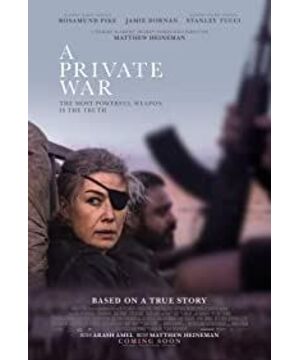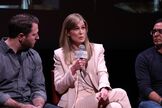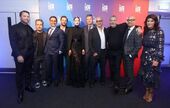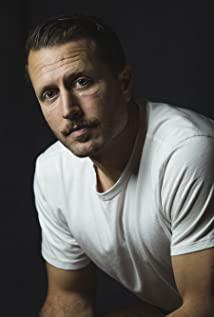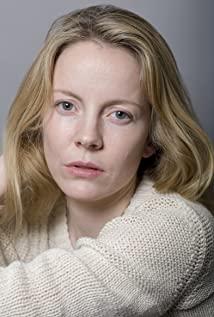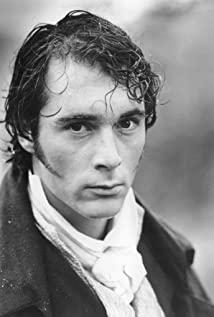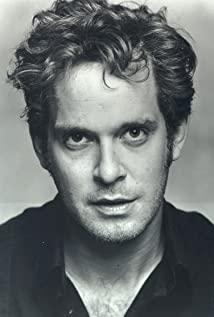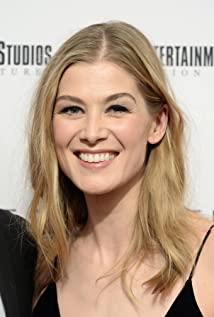This is a biographical film. It is about the biography of the famous war correspondent Mary Colvin. Mary is a reporter for the "Sunday Times". She has conducted interviews in war-torn hotspots and was blinded by the bombing in Sri Lanka. Hence the nickname "One-eyed Woman". She also went to the front lines of war in Kosovo, Chechnya, East Timor, the Middle East, Sierra Leone, and Zimbabwe. Reported on the "Arab Spring" anti-government movement and was killed in a rocket attack in Homs when the Syrian War broke out in 2012.
The film truly reproduced Mary repeatedly violating military bans, walking through the smoke-filled neighborhoods, interviewing soldiers in battle, frightened refugees and helpless children. She said: "I hate being in a war zone, but I feel compelled to do this. When you report on a war, you have to go to the places where you might be killed, or where other people were killed." She has always been like this. made. She was attacked many times, and the soldiers protecting her kept falling down, and her companions also lost their lives. But she still rushed to the fiercest part of the battle like "moths fighting fire" as she described herself. There is a detail. When Mary’s companion died in the gunfire, the Arabic translator who was on the road with her grumbled a chapter in the Koran, and her other companion was praying in sorrow, “My God Jesus!” At this time Mary looked a little lonely. I think she may not have any religious beliefs. What she believes in is her own ideals and beliefs. She will always believe in human nature. She believes that using her own power can awaken the revival of human nature, so that more people can pay attention to and condemn this. Kind of savage killing. The scope of her involvement has in many cases far exceeded the requirements of the newspapers. So I think that in addition to her strong professionalism, there is also the strong desire for adventure in her nature. In any case, all the actions in her career are admirable and admirable.
In contrast, our media workers once had this kind of dedication and sacrifice. In the Pingxingguan Campaign, the Liaoshen Campaign, and the War to Resist US Aggression and Aid Korea, many journalists fought on the front lines and gave their lives. Unfortunately, this spirit has not been passed down. I remember that in the 1979 war, it was a big event to conquer Lang Son, a city in northern Vietnam. However, in the news, I only saw one of the troops patrolling the streets of Lang Son, photographed by an officer of the Publicity Department of the 55th Army. A photo, let alone a battle scene on the front line. Peace is good, but many ghosts who fear death have also been cultivated during peacetime. When a war reporter encounters this kind of battle scene, he does not rush forward, but finds all kinds of excuses to shrink back. Compared with Mary Colvin, what do we journalists who look like men feel?
In the film, Mary once said: "You have to find the true history. If you lose it, then you are of no help to anyone. You just feel good about yourself." The public's demands for news have always been " Objective and true". But it is very difficult to be truly objective and truthful. I am afraid that even an excellent reporter like Mary can hardly do it. She has received education in Western values since she was a child, and her mind is full of prejudices about events that do not suit her tastes. You see, most of the organizations that Mary interviewed were secretly supported by the West, such as the LTTE in Sri Lanka and the opposition in Syria. Mary had a conversation in an interview with a small leader of the Syrian opposition organization.
Mary: You ran away.
Boss: Who escaped?
Mary: You escaped from Assad's troops.
Boss: Yes.
Mary: Why?
The boss was speechless.
Mary: You want freedom, right? Let me report your story.
After reading this conversation, it seemed that Mary did not seem to be interviewing, but as if she was inducing a confession. From the publication of such tendentious reports on the front page of The Sunday Times, one can imagine how it will affect the public and how public opinion is guiding the public. It's no wonder that in the eyes of Western people, the Chinese are still a group of gangsters with long braids lying on opium pipes.
Well, even if the events that Mary interviewed are true, they only reflect the reality of a local area. The whole picture of history is made up of countless "real" combinations. It's like a big real puzzle, made up of countless small real pieces. For example, after Mary reported on the hundreds of innocent people buried in Iraq after being shot, our feeling must be that Saddam was a demon. This is good. However, it is also a partial concept. When we learned that there were not only such terrorist incidents in Iraq, but also countless people who died in the bombing by the US military in Iraq, our feelings will also undergo some slight changes. Namely: Saddam is a demon, Bush and Clinton are not good things either. This is the true understanding of history.
Modern warfare, whether it is the direct participation of major powers or through agents, is essentially a drama directed by each of the major powers. In the eyes of these "directors", the innocent people and the dead soldiers are nothing more than the first crowd and the second bandit soldier in this drama. There is no word "humanity" in politicians' dictionaries. What they value is the value that can be used in those events. Not long ago, the United States used chemical weapons as an excuse to bomb Syria again. The BBC also took this opportunity to repost the news that Mary was killed that year to warm up the deployment of missiles. Looking back on the past and looking at the future, many innocent people and fearless reporters will be killed in the war. Mary's life is magnificent and valuable, but when she thinks of the ideal she or he hopes to achieve at the cost of her life, she can't help but feel a trace of sadness. I even lament the slowness of the progress of human civilization.
Mary sometimes had doubts about her work. She thought: "Can we really change anything by reporting on war? The real difficulty is always believing in human nature." I think Mary is working hard to change her concept and vision while she is engaged in war reporting. With the humanity and conscience hidden deep in her heart, she used her adventures to write her own obituaries. We also hope that countless Mary Colvin will use their fearless spirit to show people the true picture of history.
What the film lacks is that the story is not strong and the structure is loose. It's no wonder that biopic films are difficult to have a continuous story, like "General Patton" is already considered very good, and there is also no complete story. Because the choreography focuses on writing people, not narratives. Will just watch it.
In the film, Mary Colvin is played by Rosamund Parker. It vividly interprets Mary's character, behavior, and facial expressions. Including her drunken state and neurotic performance are all in place. Let us seem to see a real "one-eyed woman." The shooting of each scene in the film is also very good. Especially in one of the shots, in the wilderness of Iraq, there are mountains in the sunset in the distance, and endless deserts nearby. Under the light and shadow of dusk, Mary's jeep is driving against the light. very beautiful!
My score: 7.5.
View more about A Private War reviews


